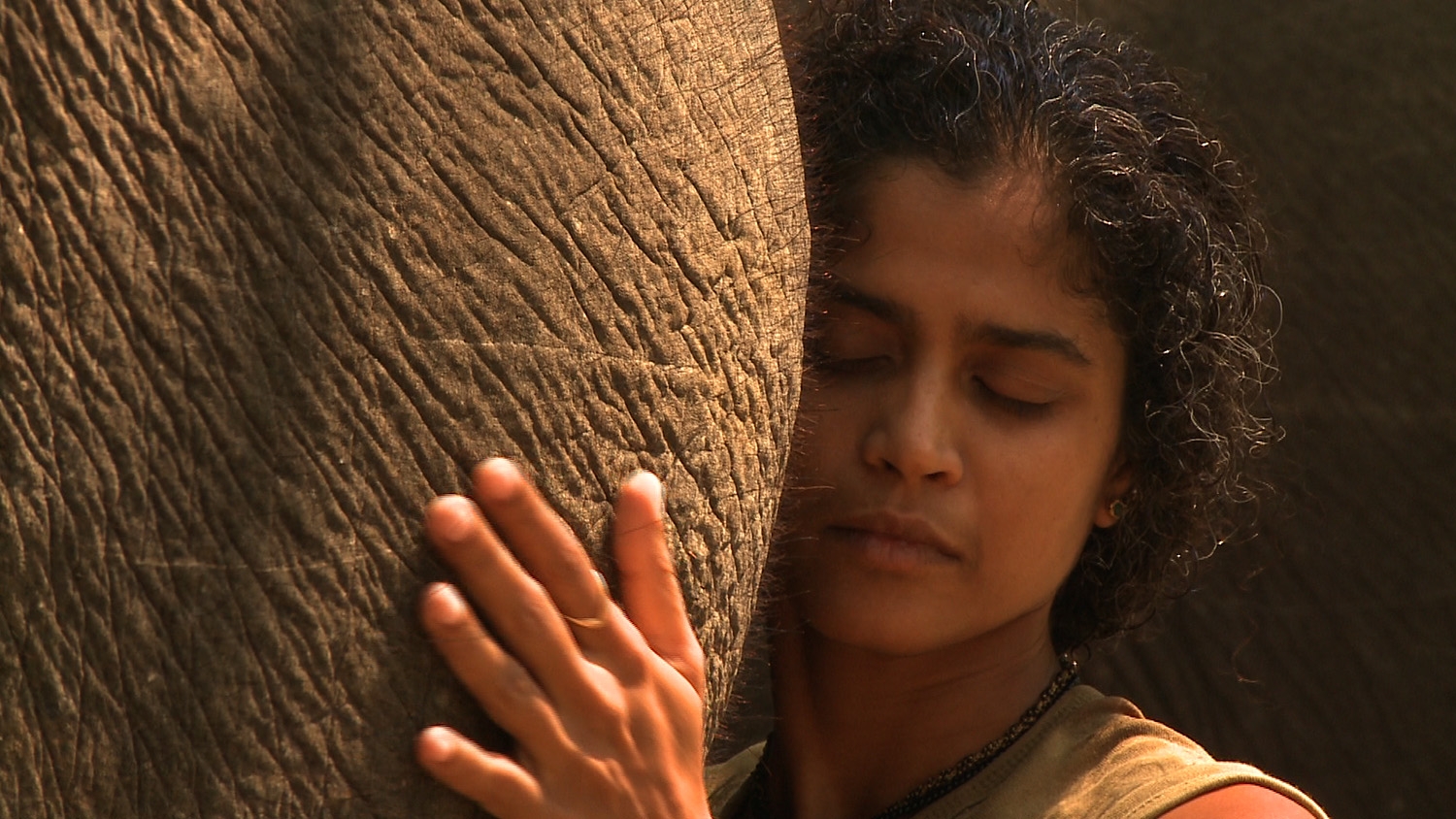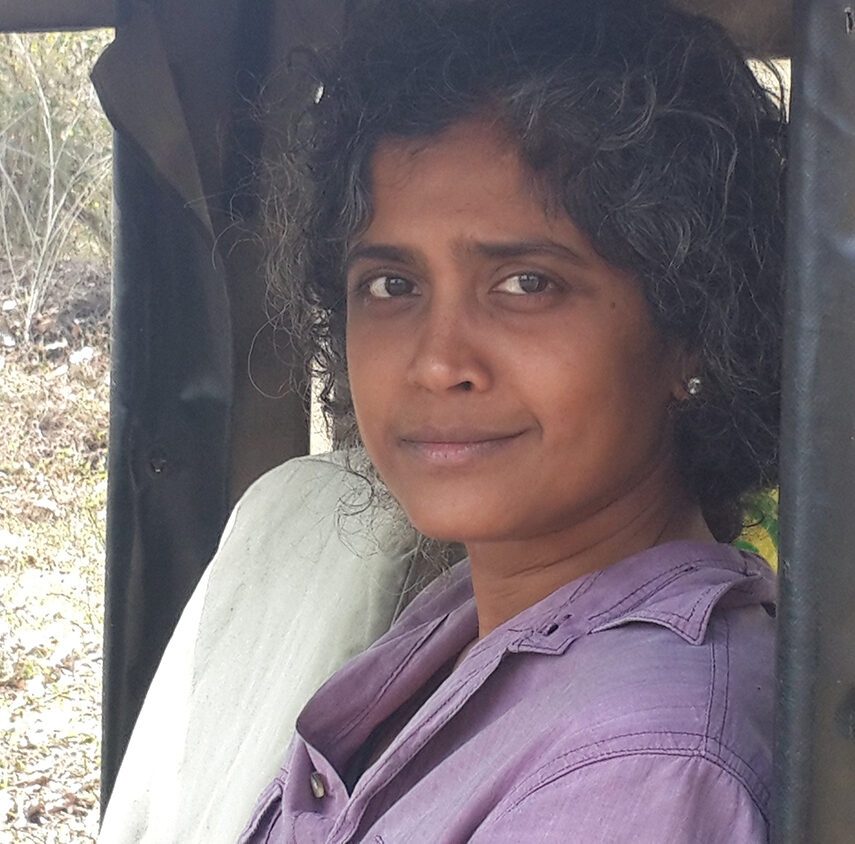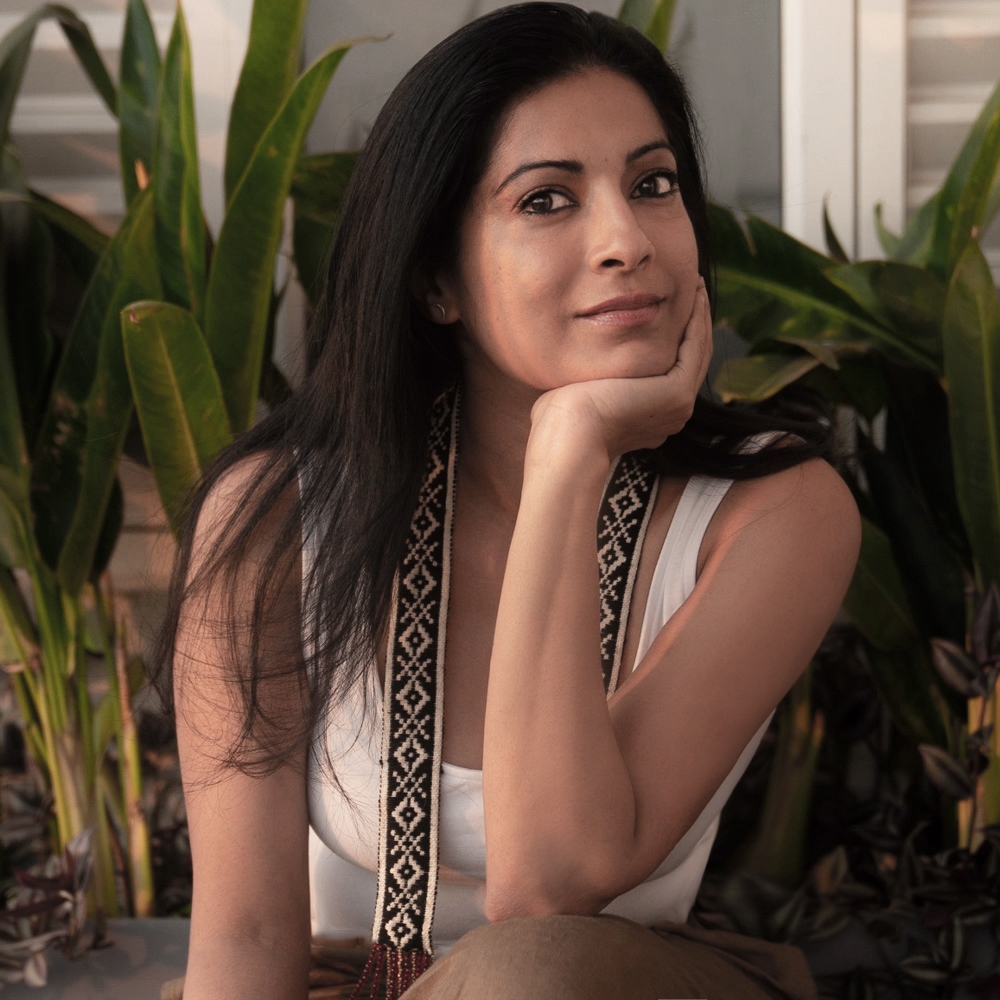WORDS BYPrajna Chowta, Ramya Reddy
In this thought-provoking conversation, anthropologist, conservationist, and filmmaker Prajna Chowta shares a life shaped by the wild and guided by an unyielding curiosity. From her childhood amidst the raw beauty of Africa and India to becoming one of the rare female mahouts in India, Prajna’s story is a testament to the transformative power of kinship—with people, nature, and elephants. Through her work with indigenous Kuruba communities and her deep bond with elephants, Prajna offers profound lessons on care, connection, and coexisting with the natural world.
Her journey unfolds in vivid, intimate moments: living among tribal mahouts, being pregnant alongside her elephant Kunti, and discovering ancient texts like the Hastividyarnava that reveal centuries of human-elephant relationships.
Her reflections are both urgent and timeless, reminding us of the rapidly shrinking space for wildlife and the vital role of conservation in securing a future where humans and animals can coexist.
Her reflections are both urgent and timeless, reminding us of the rapidly shrinking space for wildlife and the vital role of conservation in securing a future where humans and animals can coexist.
With storytelling as her tool and the wilderness as her guide, Prajna’s insights leave us with a challenge: to look beyond ourselves, reconnect with the rhythms of nature, and protect the delicate balance that sustains life on Earth.
With storytelling as her tool and the wilderness as her guide, Prajna’s insights leave us with a challenge: to look beyond ourselves, reconnect with the rhythms of nature, and protect the delicate balance that sustains life on Earth.

Ramya Reddy: What was your childhood like? Were you brought up with a deep connection to nature, or was that something you discovered later?
Prajna Chowta: It is obvious that my birth and early childhood spent in Africa—that is, far from India—had a strong impact on my awareness of origins and, therefore, of the earth. In Nigeria, we often went to the coast, to the edge of a lagoon in pristine nature. My father also took me to Kenya. Then, we returned to India every year and drove from Bombay to Mangalore following the Western Ghats. My father’s family home, where everyone lived and worked the land as a joint family, was in the middle of nature. My mother took me to the Kateel temple, where there was an elephant, although, as a little girl, I was more interested in glass bangles.
This childhood between two continents gave me an early awareness of the diversity of cultures that inspired me to search for my Indian roots. I was deeply drawn to the tribes of India, the country’s oldest inhabitants, which eventually led me to pursue anthropology in London.
Ramya: How did your journey with elephants begin? Was there a specific moment that called you, or was it a more gradual realization?
Prajna: Immediately after my studies, I went to stay with Kurubas in Wayanad. Some of them were mahouts. I was fascinated by this relationship between these little men and these huge animals, which we don’t really understand how it works at first glance, and I decided to learn this profession, as any good anthropologist would have done. Little by little, as I discovered the behaviour of elephants, I was fascinated by them, and I decided to delve deeper into this subject. Beyond field practice, I researched and read every book I could find on elephants. I went to meet Parbati Barua in West Bengal. She shared her vision of elephants with me and introduced me to the Hastividyarnava, an ancient treatise on elephants composed and illustrated in Assam in the 18th century, of which I was able to obtain a rare copy.
Ramya: As a female mahout in India, what kind of challenges have you encountered? How did you move through those experiences, and what kept you going?
Prajna: The fact that a woman decided to be a mahout obviously surprised everyone. So basically, if it takes physical endurance to practice this profession, it requires, above all, sensitivity to understand the slightest reaction of the animal and to know how to respond to it. Elephants are certainly powerful but also very sensitive, and it was the gradual discovery of this animal behaviour that fascinated me. Over time, we came to understand each other beyond words. The elephant has remarkable intelligence that is perfectly adapted to its needs and the environment in which it lives. Exploring this other perception of the world is a never-ending subject. At times, we feel what the animal feels and when we sit on its back, we become one with it. There, I found roots that go back beyond my human roots, much older, vital roots. In fact, elephants arrived in Asia 1 million years ago, while the first modern humans (Homo sapiens) came much later, only 60,000 to 40,000 years ago. So elephants may know a few more things about this earth that we still have to learn.
Ramya: In all your time spent with elephants, what have they revealed to you about kinship, care, and motherhood?
Prajna: The reason why I chose to adopt two female elephants is precisely to follow the entire process of reproduction, which extends over several years in elephants, from the encounters with wild males to the pregnancy, which lasts from 18 to 22 months, birth, breastfeeding, and weaning. We and elephants are both mammals. There are many points in common but it is impossible to observe all of this up close with wild elephants who move around a lot and whose trace we lose. My two elephants, who could roam the forest and express their natural behaviour, allowed me to follow the whole process. All this happened at a time in my life when I finally wanted to have a child myself, without being able to say where this desire could have come from. I happened to be pregnant at the same time as one of my elephants, a period of my life that I was able to share through the documentary film “Elephant Blues” and the book that was published simultaneously.

Ramya: Did becoming a mother shift how you relate to the wilderness and your work? You’ve shared in Elephant Blues that being pregnant simultaneously as Kunti, “I imagined both of you in your own galaxy, linked by something lunar, cosmic…” How did that shape your connection to the wild and your understanding of motherhood?
Prajna: It is true that in certain moments during these two simultaneous pregnancies, my mind wandered, and I found myself imagining that a link could unite the child I was carrying with the baby elephant that was developing in Kunti’s belly. Of course, these are just dreams. All we can say is that both belong to the great cycle of life on Earth.
Ramya: The poet Nancy Reddy speaks about parental love as “shared attention,” countering the idea that becoming a parent means withdrawing from everything else. How has this idea of “shared attention” played out in your bond with your daughter and your shared love for the wild?
Prajna: I disagree with this idea “that becoming a parent means withdrawing from everything else.” Having a child is natural. Towards the end of a pregnancy, you may have to be a bit careful in your physical activities, although I would swim for one hour every day until the very night my daughter was born. So, I did not give up anything from other activities. Then, you have to include the child in your daily life, but it’s a pleasure to welcome a new being in your life. There is another quote by author Elizabeth Stone, which I’d instead relate to: “Making the decision to have a child — it is momentous. It is to decide forever to have your heart go walking around outside your body.”


Ramya: Your relationship with the Kurubas, the indigenous people of the forests, has been central to your work with elephants. Could you share how their deep knowledge of the land and its creatures has influenced your own understanding and work? What have you learned from their way of life alongside elephants for generations?
Prajna: The essential difference between the Kurubas and the mainstream of society is that they remained living close to nature, and their limited economic means forced them to maintain a simple lifestyle. Their daily life is not idyllic. We must not delude ourselves or indulge in the romanticism of life in nature. Their life is rustic. They suffer from social problems and lack of access to education and medical care. Still, if they can access the forest, an unpolluted river, they are at least in a harmonious living environment. Only a few of them care for the Forest Department’s elephants. For a time, I felt it was a profession that no longer attracted young people. But society’s interest in wildlife today has rekindled young boys’ interest in this profession, and they are proud of it. So, the transmission of this 4000-year-old know-how in India is not ready to die out.
Ramya: For those who feel a growing distance from nature, how can they begin to find their way back to the wild?
Prajna: It is a hard decision to make but quite simple to implement. Maybe you should give up your job in the city if you are not happy with it. Maybe you have to learn how to live with less. There are plenty of farms and plantations in beautiful areas that are short of smart and energetic people. There are also good NGOs trying to help tribal people. Honestly, there is plenty to do around forest areas. But you have to take the first step.
Ramya: What do you see as the most urgent challenges for Asian elephant conservation today, and what small but meaningful steps can individuals take to support these efforts?
Prajna: The main challenge for Asian elephant conservation today is the limited space they have. Forest cover has decreased tremendously since Independence, and the human population has increased fourfold. The problem is that human activities have encroached on more and more forests for agriculture, irrigation, mining, etc. It is an issue that only the Government can handle. So, the first step is to vote for political candidates with the strongest commitment to protecting the environment. If you can share some expenses, consider donating elephant tracking collars to the Forest Department. This system enables the monitoring of elephant movements and helps prevent conflicts between elephants and farmers living near forest boundaries.
Ramya: Indian mythology has rich stories about elephants, like the sage Palakapya. How have these cultural stories shaped your own connection to elephants and your conservation work?
Prajna: The legend of Palakapya and other old texts that speak of elephants from ancient periods helps us to understand that these animals have always been part of our lives. Elephants coming to visit crops have existed since the dawn of time. Since they were here before us, we must remember that we took their territory, not the other way around. But elephants also opened the first roads in the thick forests, which men later widened. They helped us win wars against the invaders of our history, carrying weapons and food, wounded and refugees until 1944. They helped us pull and carry heavy loads that we would not have been able to move without them before the invention of cranes and tractors. Today, thousands of tourists travel to see them and occupy hotel rooms and restaurants, boosting tourism and bringing significant income to the local population. They are part of our history, and we must preserve a place for them for the future.

Ramya: You’ve used storytelling through film to communicate the lives of elephants and conservation. How do you see the role of storytelling in conservation today? What kinds of stories do we need to tell to inspire real engagement?
Prajna: Telling a story through a film allows us to transmit an impression in the mind of the viewers, and synthesizes ideas that are impossible to formulate solely on the basis of field observation unless you spend years on the field and do research work that is inaccessible to the general public. It is a way of explaining the work of scientists but also of extrapolating and offering a broader vision of the subject which can inspire children as much as adults. On the other hand, we must not use reality to create a fantasy that no longer has anything to do with reality. Using and diverting the spontaneous interest of children or adults in animals for purely commercial purposes is a practice that deeply disgusts me. It’s a lie. This doesn’t help anyone.
Ramya: Elephants are so often described as highly intelligent and emotional beings. Have you witnessed moments that offered you a glimpse into the emotional world of elephants?
Prajna: To speak of emotion in an elephant is to take a step I will not take. We must not project our human emotions onto animals. It’s a way of lying to yourself and certainly missing the possible encounter. By spending time with elephants, we can observe behaviours that reflect a specific form of thinking, and we can be surprised by their liveliness in reacting to a particular situation. But we must stick to the facts and avoid interpretations that are probably false. For example, I approached my elephant Kunti in a thick forest one day without realizing that next to her was a wild male and, therefore, very dangerous. Kunti understood the potential danger and put herself between me and him to protect me. This is an example that suggests a form of intelligent reflection.
Ramya: With your experience in human-animal conflicts, particularly with elephants, what do you see as the next steps for elephant conservation in India? What is your vision for fostering a future where humans and elephants coexist while nurturing a true kinship between them?
Prajna: The enthusiasm of young researchers for wildlife conservation today and the evolution of the Forest Officers on such issues gives me a lot of confidence for the future. The main problem is a question of space. It is essential that all possible natural spaces are preserved at all costs. According to demographers, the Indian population should stabilize around 2050 and then gradually reduce. Demographic pressure on natural spaces and resources will logically decrease. Until that point, we must, therefore, remain extremely vigilant and oppose any project aimed at destroying natural spaces, whether industrial projects or the multitude of small encroachments which are nibbling away at the forests today. Those who have money to invest can buy land on the edge of forests, plant trees there and stop all other activities.
Ramya: Looking back on everything, is there a moment with the elephants, perhaps quiet and unexpected, that still stays with you and continues to shape your path?
Prajna: I understand your question, but I do not have a nostalgic approach to my past experience. The advantage of nature compared to any human creation is that it offers us a new face every day, in perpetual rebirth, and this is what gives me the taste for living and looking forward to tomorrow.
Ramya: Thank you, Prajna, for sharing your story so generously. It’s been a privilege to learn from your experiences.
Prajna: Thank you, Ramya

